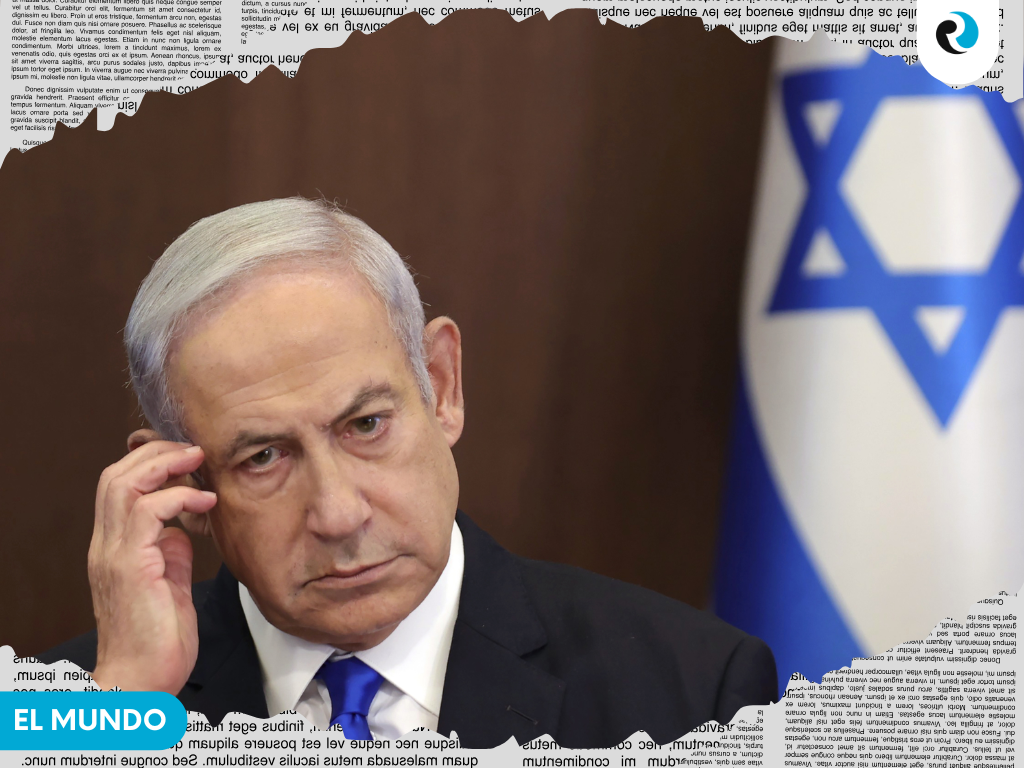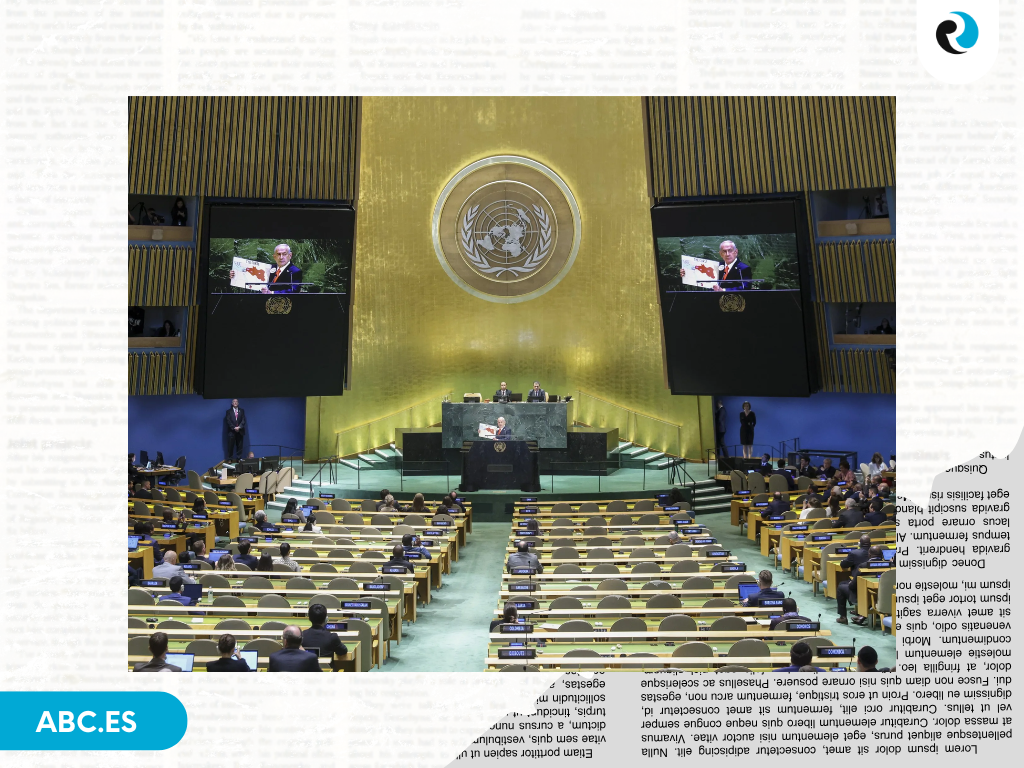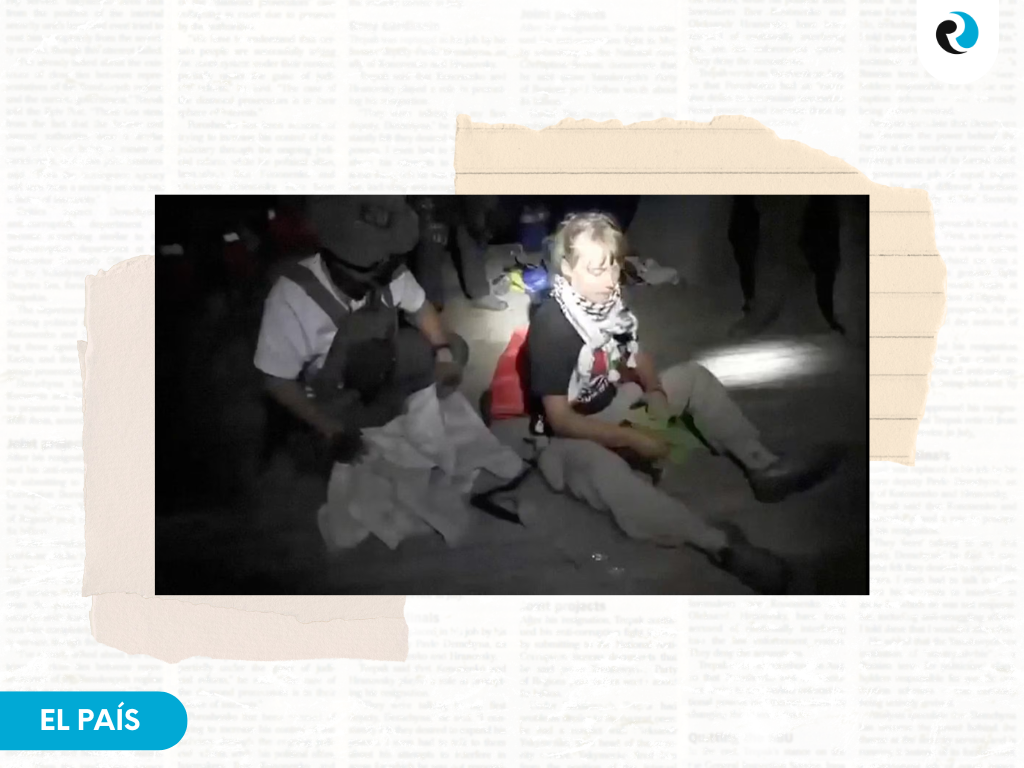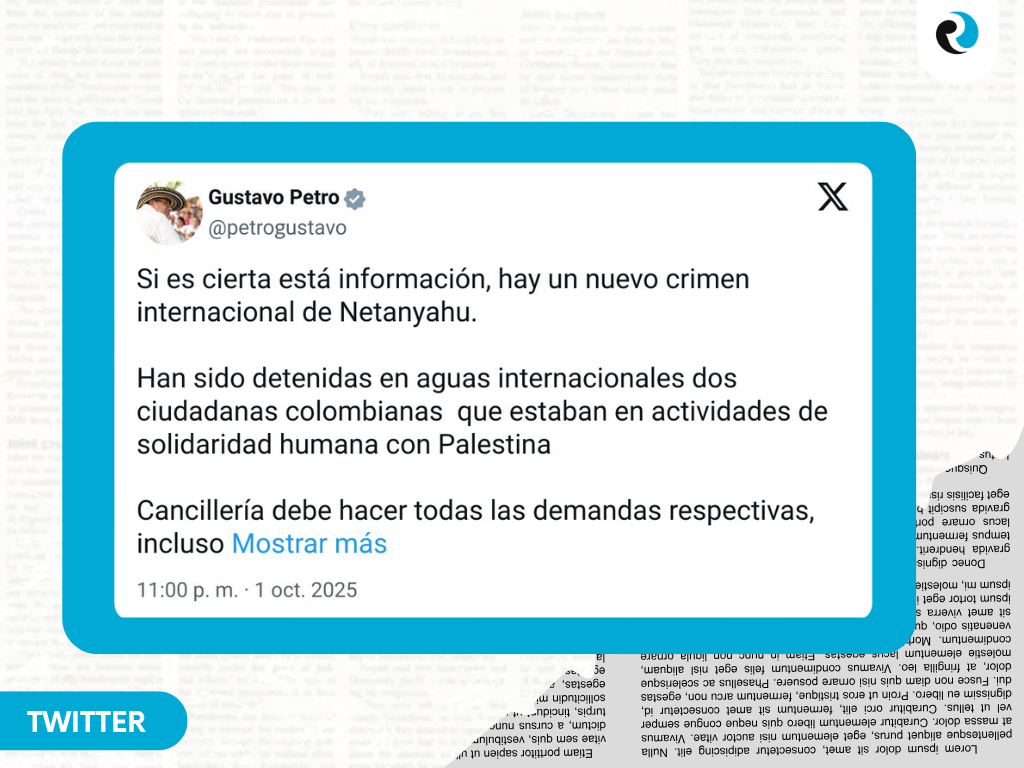The recent history of the Middle East has always been symbolic and political. But what’s happening with Israel today—its offensive in Gaza, the interception of humanitarian flotillas, and its growing diplomatic isolation—has placed Netanyahu under a spotlight on his online reputation.

The war that never ends: how did we get here?
The current escalation began on October 7, 2023, when Hamas launched an attack on Israel, killing an estimated 1,200 people and kidnapping more than 250. It was the deadliest assault on Israeli citizens in decades, and the perfect pretext for the Jewish state’s most forceful response in recent years.
Netanyahu then declared that the war would “last as long as it takes” and that the goal was to “annihilate Hamas.” But a year later, the toll is more grim than strategic. According to the Gaza Ministry of Health, more than 65,000 people have died under Israeli bombing. Two million are living under siege. And Israel’s international reputation, and that of its prime minister, has been deeply eroded.
Israel has banned international journalists from entering Gaza since the start of the war, making independent verification difficult. But in the eyes of the world, the images of pulverized buildings, injured children, and overwhelmed hospitals need no caption: the narrative has already been formed.
From strong leader to polarizing figure
For years, Netanyahu was perceived as a skilled statesman, capable of maintaining a delicate balance between security, the economy, and international alliances. His ties to Donald Trump were key to consolidating his image of power: he persuaded the US to move its embassy to Jerusalem, recognize Israeli sovereignty over the Golan Heights, and close ranks in international organizations.
But that era is over.
Today, Netanyahu is booed at the UN General Assembly. His recent address at the 80th General Assembly was met with an unusual act of rejection: dozens of diplomats stood up and left the room when the prime minister took the podium.

Calls for “order in the room” were repeated over the loudspeakers, while outside the building, hundreds of protesters filled Times Square in New York with Palestinian flags, signs, and chants against the offensive in Gaza.
The contrast was striking: cheers and applause within a minority group, some raising their fists in support of Netanyahu, versus the empty seats in the official delegates’ area, who spoke louder than any speeches. Clear reputational damage.
The protests were not limited to the US.
- In Italy, activists blocked roads and held rallies in solidarity with the Flotilla.
- In Spain, students from several universities organized marches and strikes, and the Catalan Parliament suspended its session in protest.
- In Colombia, the detention of female citizens aboard the flotilla led to a diplomatic conflict that culminated in the expulsion of the Israeli delegation.
- In countries such as Ireland, France, Germany and Norway, citizen demonstrations have multiplied, some of them repressed, in support of Palestine and in condemnation of the actions of the Israeli government.
Traditional allies are increasingly uncomfortable. Criticism is no longer hidden in diplomatic corridors: it is made public in editorials, parliamentary statements, and political decisions such as the recognition of the Palestinian state.
Netanyahu’s once-shielded international reputation is being shattered live on air.

Even the map of Palestinian recognition is changing: countries such as Australia, the United Kingdom, Canada, Portugal, France, Belgium, and Luxembourg have joined the list of states that officially recognize a Palestinian state.
The message is clear: the world does not unconditionally support Israel… much less Netanyahu.
The Humanitarian Flotilla: Repression, Propaganda, and Reputational Damage
In the midst of the reputational collapse of the Netanyahu government, the interception of the Global Sumud Flotilla has added a new front of international criticism.
The convoy, made up of 44 vessels carrying activists from 12 countries, was attempting to deliver humanitarian aid to Gaza, breaking the Israeli blockade. Among the participants were Greta Thunberg and Ada Colau. However, they were intercepted by the Israeli military in international waters, violating international maritime law, according to legal experts.

The scenes described by the crew— ramming, water cannons, forced isolation, and immediate deportations —contrast with the Israeli justification, which accuses the flotilla of links to Hamas. The evidence presented, however, has been dismissed as political propaganda by mission spokespeople and independent legal experts.
Several governments, including Spain, Italy, and Colombia, have requested formal explanations. Meanwhile, images of arbitrary arrests and the criminalization of humanitarian aid continue to circulate online, reinforcing a global narrative: Israel no longer controls its reputation, only its narrative.
For Netanyahu, this episode is devastating in the simplest terms: it’s a reputational crisis. Not only was a humanitarian mission blocked, but the world was presented with the image of a state that represses international solidarity with disproportionate force.
The break with Colombia: diplomatic isolation deepens
One of the most recent blows to Netanyahu’s image came from Latin America. Colombian President Gustavo Petro ordered the expulsion of the Israeli diplomatic delegation after the arrest of two Colombian citizens participating in the humanitarian flotilla.
“A new international crime by Netanyahu,” Petro wrote. He also denounced the Free Trade Agreement between the two countries. The reaction was immediate: diplomatic protests, cross accusations, and a distancing that until recently was unthinkable.

Colombia, one of Israel’s historic allies in the region, thus joins the growing number of voices denouncing the current Israeli government’s practices as a violation of international law.
What lies ahead for activists?
Following the detention of the Global Sumud Flotilla participants in international waters, the legal and human consequences mount rapidly. As is standard Israeli procedure, the activists are transferred to Israeli ports, where they face interrogation without immediate legal assistance, temporary isolation, and pressure to sign immediate deportation orders.
These orders require a written acknowledgment that they attempted to enter Israel illegally, which carries with it a ban on entry for up to 100 years. Those who refuse to sign face prosecution and prison sentences, with detention conditions that have been strongly criticized by organizations such as Amnesty International and Adalah, an Arab-Israeli human rights NGO.
Several activists—including Europeans—have reported mistreatment, overcrowding, poor hygiene, and, in some cases, force-feeding after declaring a hunger strike, a practice that contravenes international standards. The precedent of the Madleen boat, intercepted in June, remains fresh: its crew reported unsanitary conditions, long detentions without trial, and isolation.

The Israeli government defends these measures on the grounds of national security and maintains that the flotilla violated the legally imposed maritime blockade on Gaza. However, the international legal community questions this legality, noting that the interceptions occurred outside Israeli territorial waters and that the UN Convention on the Law of the Sea recognizes the passage of humanitarian aid even in conflict situations.
From a reputational perspective, this harsh response is having a boomerang effect. Images of arbitrary arrests, the criminalization of public figures, and the lack of transparency reinforce the narrative of oppression over security, further weakening the external image of the Netanyahu government.
As diplomatic pressure mounts—with governments like Spain, Colombia, Ireland, and Turkey demanding formal explanations and guarantees for their citizens —an uncomfortable question arises for Israel: Is it protecting its security or irreparably eroding its legitimacy?
An open question to the world (and to leadership)
Can a leader withstand international discredit without jeopardizing his domestic legitimacy?
Recent history offers eloquent examples. And although Netanyahu retains power in Israel, his digital reputation has entered a gray area from which few return unscathed.
Time, politics, and global public opinion will ultimately define his legacy.
What’s at stake is no longer just military victory. It’s something more delicate, more fragile, and more difficult to recover:
Trust.

